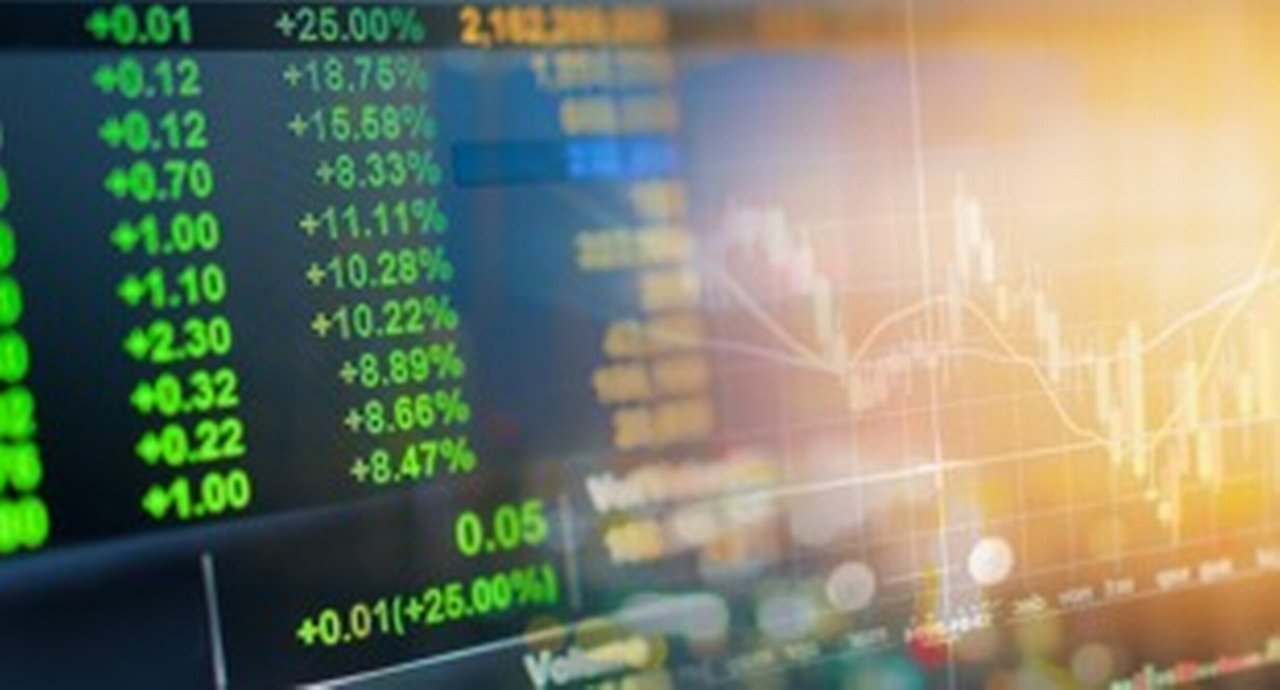01 December 2021
Having bounced back from Covid-19-related shocks, liquidity in local equity and bond markets is now the priority in the Middle East as GCC economies attract overseas investors following market infrastructure reforms. Securities services in the region are also navigating ESG and digital asset developments. flow reports on discussions at The Network Forum Virtual Middle East meeting
MINUTES min read
Having undergone a multi-year market liberalisation journey that saw one of the biggest Gulf Co-operation Council (GCC) countries, Saudi Arabia, open up its domestic securities markets to foreign investors, policymakers are now looking to build upon the work done so far.
Market liberalisation is reflective of the wider efforts among GCC countries to diversify their economies beyond commodities (and particularly hydrocarbons). Examples of these are such transformative reform programmes as Saudi Arabia’s Vision 2030; the Abu Dhabi Vision 2030, and the Kuwait Vision 2035. Although market reforms resulted in these countries being incorporated into global indices like MSCI and S&Ps, GCC markets are attempting to further stimulate liquidity in the region by encouraging more local initial public offering (IPO) activity, developing bond connectivity channels and introducing new and exciting financial products such as derivatives and digital assets. These issues – and many more – were discussed at length during The Network Forum (TNF) Middle East conference that took place virtually on 8–9 November 2021.
Facilitating a vibrant equity and bond market
Equity markets in the GCC region are flourishing – having rapidly recovered from the impact of the pandemic. In order to bolster regional liquidity, some GCC governments are encouraging for more domestic corporates to list, according to Manoj Aidasani, Director, Head of Securities Services, GCC, at Deutsche Bank, who attended the TNF event. Their efforts appear to be working. Already in 2021, there have been nine listings on the Saudi Tadawul (mainstream stock exchange) and Nomu (alternative stock exchange) markets, according to the Saudi stock exchange website,1 with another two projected to happen before the year’s end. Activity is rebounding in the UAE with lucrative listings in Abu Dhabi with others expected to follow shortly in Dubai. Elsewhere, the timing of TNF was fortuitous: first was the announcement by Dubai to list 10 state-owned companies to boost their market capitalisation and second was the Saudi Tadawul Group, the country’s stock exchange and a regional hegemon by market capitalisation, announced it would list 30% of its shares.2 The Tadawul will now become the third publicly traded exchange in the GCC; joining the Dubai Financial Market and Boursa Kuwait.
The region’s bond markets are also expected to thrive following the introduction of structural changes, especially at a central securities depository (CSD) level. Saudi Arabia’s Securities Depository Center Company (EDAA) and two International Central Securities Depositories (ICSD) Euroclear and Clearstream agreed to launch a link giving international investors access to the country’s sukuk and bond markets from March 2022.3 Aidasani noted there was already growing interest from foreign institutions – including asset managers and insurance companies – in the new linkage. The Saudi Arabia inclusion in the FTSE Russell Emerging Markets Government Bond Index followed shortly after the international central securities depositary (ICSD) connectivity link was launched.4 Saudi Arabia’s inclusion on the bond index will take effect from April 2022 with the country expected to account for 2.75% of the overall index. Beyond Saudi Arabia, Aidasani reported that bond activity in the UAE had been buoyant with the country issuing its first ever sovereign bond – raising US$4bn – on Nasdaq Dubai.5
"Many countries will want trading volumes to increase in the vanilla instruments before they consider launching more esoteric products"
Product innovation in the GCC gathers momentum
In addition to accelerating liquidity by deepening the local equity and bond markets, GCC regulators are also looking to increase trading volumes through the launch of new products and financial market infrastructures (FMIs). Having introduced securities lending and securities borrowing tools, several GCC economies are turning their attention to exchange-traded derivatives, said Aidasani. Derivatives, he continued, will be integral in helping foreign investors hedge their risk, but also build up leveraged positions. In accordance with industry best practices, the stock exchanges of the UAE, Kuwait and Saudi Arabia have either established or are in the process of setting up central counterparty clearing houses (CCPs) to support their local derivatives markets.
In 2020, the Tadawul unveiled Muqassa, a CCP which will clear index futures, single stock futures, single stock options and index options.6 In early November 2021, the ADX (Abu Dhabi Securities Exchange) permitted trading in single equity futures, which will be supported by a CCP too.7. “Vanilla derivatives are a good starting point for many of these markets. Many countries will want trading volumes to increase in the vanilla instruments before they consider launching more esoteric products,” explained Aidasani.
A handful of GCC markets are also looking to capitalise on the growing investor appetite for digital assets, which covers instruments including crypto-currencies, asset-backed stablecoins and security tokens, namely cryptographically secured digital representations of assets which are issued, transferred or stored on DLT (distributed ledger technology).8 DFSA (Dubai Financial Services Authority), the DIFC (Dubai International Finance Centre) regulator, is imposing new rules overseeing investment tokens such as security tokens and derivative tokens. Aidasani said some assets –particularly bonds and certain illiquid instruments held outside of CSDs – are ripe for tokenisation. By fractionalising these assets, it will become easier and cheaper for investors to buy them, leading to greater liquidity. However, digitalising assets such as blue-chip equities may not be advisable as they are already relatively accessible, meaning that tokenisation could potentially result in a splitting up of liquidity.9
There is also opportunity in the B2B segment to create settlement efficiencies and tokenize some of the legacy process like Money Market instruments. Amid a massive spike in retail trading of crypto-currencies, Aidasani said he expects tighter regulations to be imposed in the GCC markets to safeguard local investors – especially those purchasing crypto-currencies via loosely supervised, third-country digital exchanges.
On ESG investing, progress is being made in the region. ESG reporting by locally listed corporates is becoming increasingly common and often in a multilingual format. This is because issuers seek to attract capital from global investors focusing on sustainability, a number of whom are coming under pressure from their own underlying clients and regulators to integrate ESG into their decision-making processes. Elsewhere, several leading markets – most notably Saudi Arabia – have pledged to reach net zero emissions by 2060.
“ESG is going to be embedded in the investment cycle and implemented widely, there is work to be done on the reporting, ratings and data consistencies. As service providers we endeavour to enable our clients with tools that shall allow them to fulfil their responsibility and lead to a better and safer future,” said Aidasani.
GCC looks to the future
Several GCC markets have spent the last few years developing dynamic regulatory frameworks aimed at attracting inward investment. As a result of this positive reform zeal, these countries have since been rewarded by leading benchmarks with index inclusion, which in turn has led to healthy inflows from active and passive fund managers. By deepening their equity and bond markets, and launching new investment tools, these countries hope to increase local market liquidity even further.
The virtual Network Forum Middle East Meeting took place 8-9 November 2021
Sources
1 See https://bit.ly/3rqwJTE at saudiexchange.sa
2 See https://bit.ly/3EbUFh3 at english.alarabiya.net
3 See https://bit.ly/3rtL4P0 at arabianbusiness.com
4 See https://reut.rs/3I9GriV at reuters.com
5 See https://bit.ly/3d9bzAR at arabianbusiness.com
6 See https://bit.ly/3G35S41 at marketsmedia.com
7 See https://reut.rs/3o86RtB at reuters.com
8 See https://bit.ly/3xIdO7Z at dfsa.ae
9 See also the flow article Token Power (25 June 2021)
Securities services solutions Explore more
Find out more about our Securities services solutions
Stay up-to-date with
Sign-up flow newsbites
Choose your preferred banking topics and we will send you updated emails based on your selection
Sign-up Sign-upSubscribe Subscribe to our magazine
flow magazine is published annually and can be read online and delivered to your door in print
You might be interested in
SECURITIES SERVICES, TECHNOLOGY
What will be the shape of digital custody? What will be the shape of digital custody?
As investors build digital asset portfolios while they chase superior returns and diversification, custodian banks are building digital custody solutions to help them. Clarissa Dann reports on the risks and regulatory arms embracing these new asset classes
SECURITIES SERVICES
TNF Americas: Adapting to the new order TNF Americas: Adapting to the new order
As markets across the Americas slowly recover from the pandemic, leading experts from the securities services world – speaking at The Network Forum (TNF) Americas Conference – explored the changes sweeping through the industry. flow looks at some of the main discussion points arising from the event
SECURITIES SERVICES, REGULATION
Accelerated settlement – the move towards T+0 Accelerated settlement – the move towards T+0
One of the problems with securities settlement happening up to two days following the execution of the trade is the potential for operational and counterparty risk during that window. flow hears from Deutsche Bank’s Mike Clarke and Emma Johnson on the industry and regulatory cooperation, as well as the collaboration needed for instantaneous settlement



